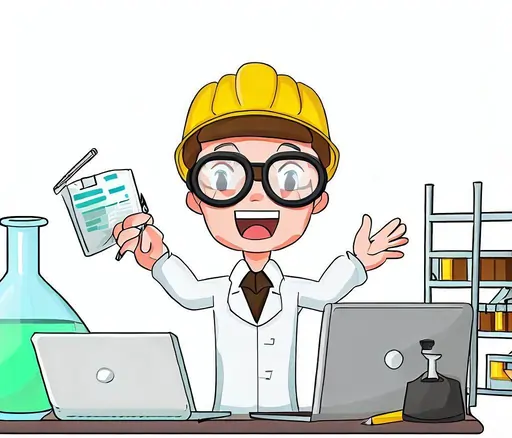A flexible mechanism, education is constantly adjusting to the demands of a changing world. It now focuses on the overall development of the person's intellectual and analytical skills rather than just textbook knowledge. Assignments are crucial for enhancing the educational process in the academic world. The significance of chemical engineering assignments cannot be overstated, particularly in the field of chemical engineering. They provide hands-on learning opportunities that link conceptual understanding to practical applications.
Chemical engineering is a multidisciplinary field that integrates physics, biology, mathematics, chemistry, and other disciplines to design and create chemicals, materials, and energy. Assignments in this area go beyond customary learning methods and require students to put their comprehension of intricate scientific principles into practice. They encourage creativity and innovation while fostering problem-solving and critical thinking, all of which are crucial for a successful career in chemical engineering.

The importance of chemical engineering assignments for learning:
Students have the chance to comprehend and use intricate chemical engineering principles in assignments that are based on actual situations. Their understanding of fundamental ideas is strengthened as they move from theory to application, which improves their capacity to remember and apply this knowledge. Students gain an understanding of the complex relationship between scientific principles and real-world applications through the process of going from understanding a problem to developing and putting into practice a solution.
Assignments in the field of chemical engineering frequently entail creating experiments or resolving challenging process issues. The ability to critically assess the viability and efficacy of various solutions is fostered by this experience. Students gain knowledge of how important it is to make decisions in a professional engineering environment by taking into account factors like cost-effectiveness, sustainability, and safety. Through these assignments, students also develop the habit of self-directed learning, which helps them long after their academic careers are over.
Developing Problem-Solving and Critical Thinking Capabilities:
A chemical engineer's toolkit includes the ability to think critically and solve problems. Chemical engineering assignments encourage students to delve deeply into complex situations and unearth effective solutions, which stimulates these abilities. The issues raised frequently have multiple layers and call for a thorough comprehension of chemical engineering principles. Students gain the ability to analyze various aspects of a situation, spot patterns, and connections, weigh various solutions, and select the most effective one by working through these issues.
Chemical engineering problems frequently lack a single ideal response. Instead, they necessitate making compromises between opposing factors like sustainability, cost, and efficiency. Assignments in chemical engineering mirror this ambiguity and complexity, forcing students to make comparable trade-offs. Students will benefit greatly from this experience in preparing them for the difficulties they will encounter in their professional careers.
Chemical engineering is one of many scientific fields that are not typically associated with innovation and creativity because it is frequently seen as rigid and formulaic. The reality, however, is quite the opposite. Engineering fields naturally foster creativity because they focus on developing solutions to challenging issues. The best solutions frequently involve creative applications of scientific principles and outside-the-box thinking. Assignments in chemical engineering give students a place to develop and use their creativity.
Assignments teach students to think outside the box and to apply their knowledge of scientific principles to create original solutions. They perform practical work such as planning experiments, streamlining procedures, or simulating chemical reactions. These tasks force them to use original thought and new applications of their knowledge. This routine fosters an innovative mindset, which is essential for advancing chemical engineering research and advancement.
Collaborative learning facilitation:
Assignments in chemical engineering frequently call for collaboration. Students are expected to work collaboratively with their peers to complete the task, whether it be a group project or a lab experiment. This encourages group learning, where students pick up knowledge from their peers as well as their teachers.
Collaboration encourages an open exchange of knowledge and ideas in the classroom. It enables students to benefit from the perspectives and insights of their peers, deepening their understanding of the subject. In addition, team projects help students hone their leadership and communication abilities, preparing them for the collaborative nature of professional engineering environments. Additionally, collaboration promotes students' sense of self-responsibility and accountability to their team as well as to themselves.
Any engineering discipline's foundation is theoretical knowledge. The use of this knowledge, however, is where its true value lies. Assignments in chemical engineering act as a link between theoretical understanding and real-world application. They improve students' comprehension and retention of the material by turning abstract ideas into concrete issues and solutions.
Assignments expose students to practical challenges and considerations that are frequently left out of textbooks in addition to reinforcing theoretical knowledge. These may include things like finite resources, environmental impact, legal requirements for safety, and economic viability. Such exposure helps students develop an understanding of the larger context and implications of their work as well as prepares them for the realities of the working world.
Assignments for Fostering Professional Development and Real-World Skills:
Assignments in chemical engineering give students the chance to develop skills necessary for their future careers as well as a way to reinforce their knowledge. Students who complete these assignments indirectly develop a wide range of hard and soft skills. Students can improve their project management and time management skills, for example, by carefully planning and carrying out the steps necessary to finish an assignment on time. Similar to this, tasks that demand thorough report writing help students develop their technical writing and communication skills.
Any professional engineer must have a working knowledge of ethical standards, environmental concerns, and sustainability. Although these topics aren't always discussed in-depth in a traditional classroom setting, they frequently take center stage in numerous assignments. Students gain awareness and understanding of these real-world issues long before they enter the workforce by emphasizing these areas in academic assignments. Aside from helping to create more responsible engineers, early exposure also makes sure they are better equipped to handle these issues later in their careers.
Fostering Lifelong Learning:
The promotion of independent learning is an important aspect of assignments, especially in a dynamic field like chemical engineering. The capacity to stay current becomes increasingly important as new technologies emerge and the industry develops. Students develop a habit of independent research and lifelong learning as a result of regular assignments. They frequently entail studying cutting-edge research, exploring emerging trends, and investigating the most recent technologies.
Students are kept up to date on the most recent developments in their field thanks to this ongoing engagement with the leading edge of the industry. Additionally, it promotes the practice of lifelong learning, which is a valuable quality in the quickly changing world of today. A successful career in chemical engineering requires not just the ability to learn new things but also the capacity to adapt to changing circumstances.
Assignments and Evaluation: A Complete Learning Assessment:
Additionally, assignments are a powerful tool for educators' evaluations. Assignments provide a more thorough assessment of a student's understanding than traditional exams, which primarily test a student's capacity to recall and reproduce information. They give teachers the chance to evaluate students' problem-solving abilities, creativity, and ability to apply their knowledge in real-world contexts.
Additionally, assignments offer ongoing evaluation, enabling instructors and students to track progress throughout the course. Students can pinpoint their areas of weakness, address them, and continuously advance their understanding thanks to this continuous feedback loop. Insights into students' comprehension levels are provided for educators, enabling them to modify their teaching strategies and methods as needed to ensure effective learning.
Conclusion:
Assignments in chemical engineering are crucial learning resources for students as they progress through their academic careers. Students strengthen their theoretical knowledge and gain crucial practical skills for their future careers through these assignments. Assignments enable students to apply their knowledge to real-world scenarios by bridging the gap between theory and application, thereby preparing them for the difficulties they may encounter in the field.
Assignments in chemical engineering also develop students' analytical, problem-solving, and critical thinking abilities. The analysis of complex issues, the development of plans of action, and the formulation of novel solutions that are required of students help them develop the skills necessary to meet the challenges that arise in the workplace. Additionally, as students work independently on tasks, conduct research, and look for appropriate resources to complete their assignments successfully, assignments encourage independent learning and self-discipline.
Additionally, chemical engineering assignments give students a chance to demonstrate their originality, creativity, and communication abilities. Students gain the critical communication skills necessary for career success in the field through discussions, presentations, and report writing.
Overall, chemical engineering assignments are crucial in developing well-rounded chemical engineers by giving them the knowledge, abilities, and self-assurance they need to succeed in their academic endeavors and future careers.
